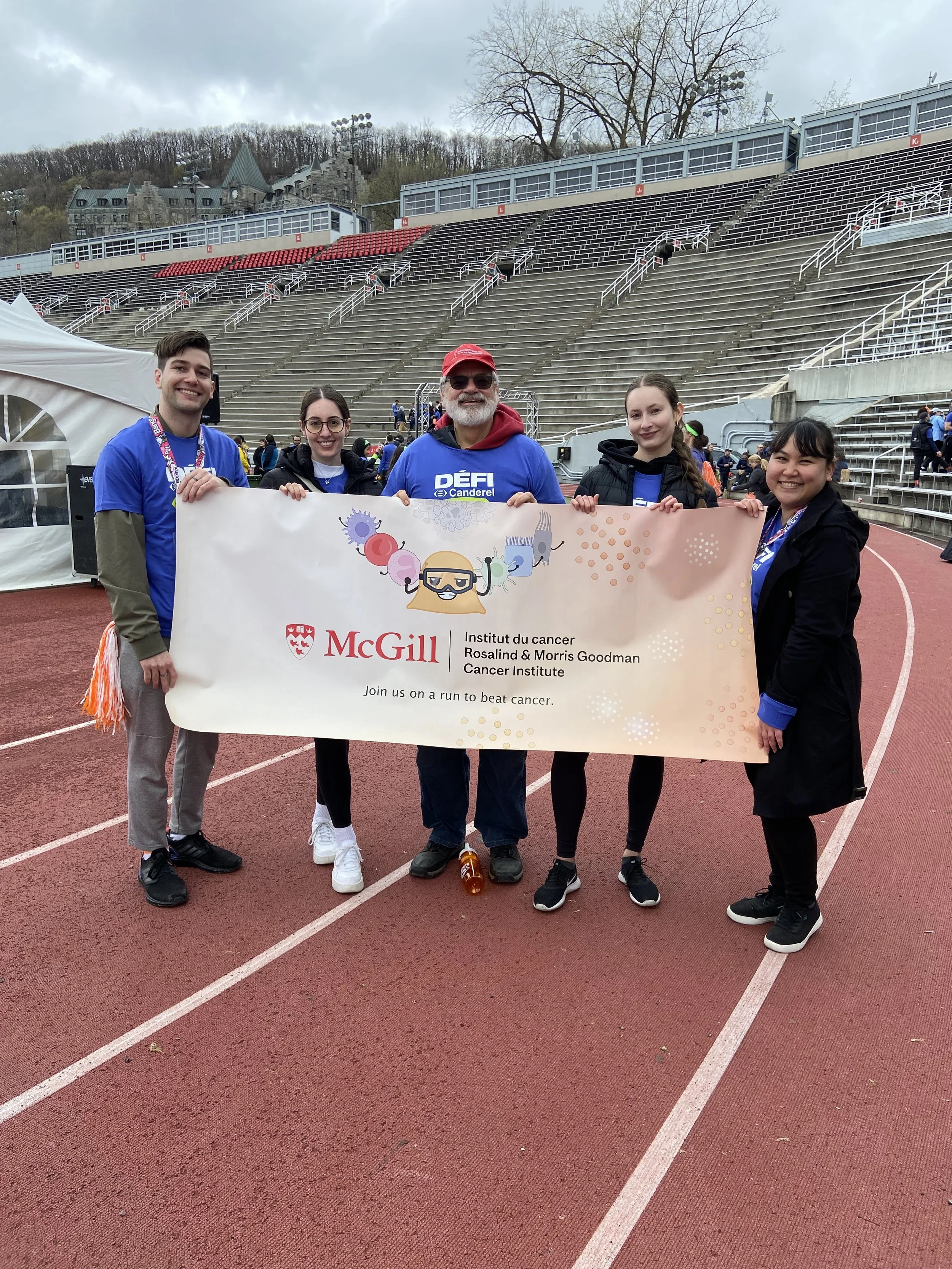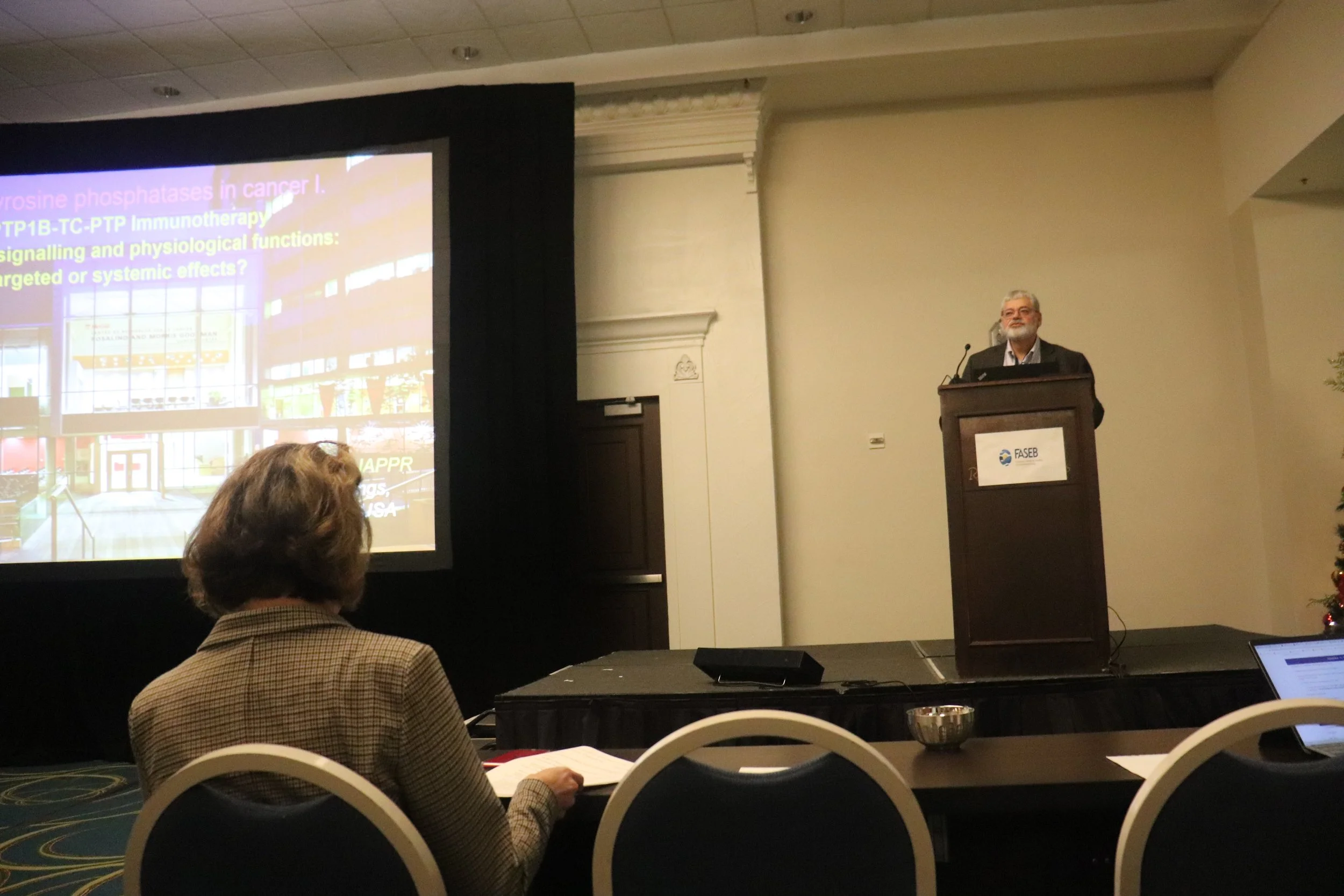
Unraveling the role of Protein Tyrosine Phosphatases (PTPs) in human health and diseases
PTPs are at the forefront of our research
Protein tyrosine phosphatases (PTPs) remove phosphates from the tyrosine residues of their substrates. By doing so, they can essentially turn ON or OFF signaling cascades inside cells. These signaling cascades control a wide range of cellular processes ranging from insulin sensitivity to immune cell activity against cancer.
Recent activity
Current projects
-

Harnessing PTPN1/2 inhibitors for immunotherapy
PTPN1 (PTP1B) and PTPN2 (TCPTP) serve as potent negative regulators of immune activation against cancer. Inhibiting them favors anti-tumor immunity.
-

The function of PTPN1 and PTPN2 in immune cell types
Function of PTPN1/2 depends on the cellular context and signaling. We explore their function in a variety of immune cell types to understand how to better target them.
-

The role of PRL phosphatases in magnesium homeostasis
Phosphatases of regenerating liver (PRLs) have been associated to cancer. We work on dissecting the biochemical mechanisms that link these phosphatases to cancer.
-

PRL2 in immunity
Beyond, their role in magnesium homeostasis, the function of PRLs is largely unknown in the immune system. We explore the function of PRL2 in various immune cells.
-

TAO-kinases in immune signaling
TAO-kinases comprise 3 members that possess essential roles in regulating immune responses and cancer.
-

Phosphatases in infectious diseases
We study the importance of phosphatases in infectious disease from both the host and the pathogen standpoint.










